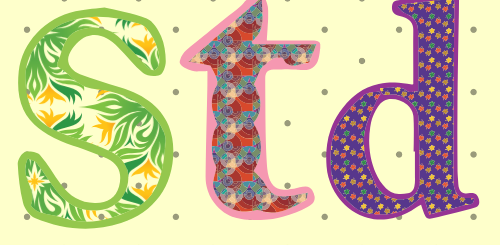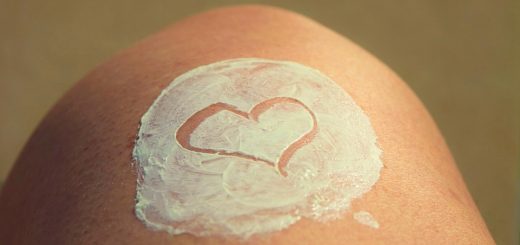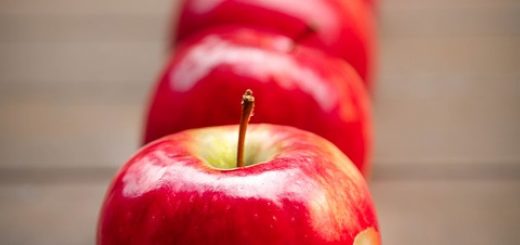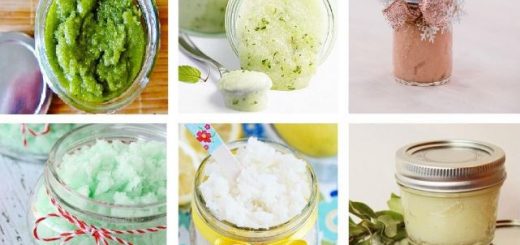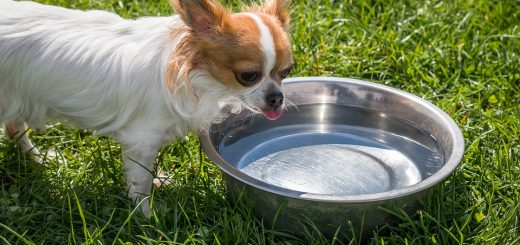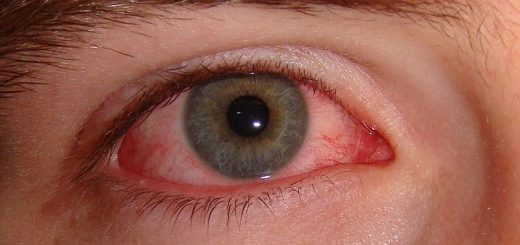29 Home Remedies for Incontinence
The term incontinence refers to the release of urine in an uncontrolled manner. This type of sickness is more common among women than men and over ten million people in America suffer from incontinence. The incontinence issue occurs at any age but is mostly present in people older with people over 65 being the main victims of this problem.
Despite having mentioned that senior citizens are more prone to being victims of incontinence, incontinence is not an age-related problem. Incontinence occurs due to a variety of reasons. It can also be a problem only for a limited period of time or can last for long.
Since incontinence is a personal matter, sufferers rarely seek expert opinion for this problem. Their uncontrollable bladder remains an unsolvable issue and no medical cures are used to treat the problem.
Two Variations
One type of incontinence refers to stress related incontinence. This type is the more frequent uncontrollable urine problem among women who are below sixty years of age. Younger women are also more prone to contracting stress related incontinence.
Stress associated incontinence is mainly an occurrence post menopause. Another reason for this type of incontinence is also caused by a weak pelvic muscle, tummy surgery and giving birth many times.
Another type of incontinence is urge incontinence. This is caused by the regular unexpected contraction of bladder muscles. The bladder muscles contract involuntarily even when the bladder is not actually full. The reason for these unusual contractions remains unknown but it has been connected to side effects of drugs, nerve damage, and strokes.
Common Classification and Causes
There are many attributes blamed for urinary incontinence and every attribute has diverse symptoms and causes.
- Stress-related incontinence mainly occurs whilst partaking in exercises, coughing, or sneezing. Sometimes it can occur as a result of applying too much pressure on the body specifically on the bottom tummy muscles and bladder area.
- Urge incontinence, on the other hand, refers to the inescapable need to release urine immediately and not contain urine urges.
- Overflow incontinence mostly happens when the bladder is filled to the brim and slight urine droplets are released.
- Functional incontinence has been mentioned as the main condition experienced by many. These people battle with mobility and are unable to reach the toilet when needed.
- Children who face incontinence at night may simply be diagnosed with bedwetting, rather than incontinence.
Home Remedies for Incontinence
The preferred approach to treat incontinence is really dependent on the type of incontinence under review. The seriousness of urine related problem also leads to the prescribed remedy. Sometimes the incontinence is the result of other issues and thus a cure for the incontinence can be taken alongside the cure for the condition causing the incontinence.
Incontinence is hardly spoken about. Statistics, on the other hand, highlights that the number of people who suffer from incontinence are numerous in America and worldwide.
Cures for this urine related issue includes drugs and having surgery done. However, the less serious cures include regular exercise, lifestyle adjustments and sometimes supplements work well too.
-
Use a Supplement
Constipation has been known to lead to incontinence. Sometimes, constipation can be caused by Diverticulitis. Using a supplement to cure constipation will inevitably cure incontinence. A Citrucel or Metamucil supplement works best for this. Do not consume any supplement without reading precautions of the supplement first.
-
Train Your Bladder
Make sure to control your urine urges by controlling the bladder. One needs to avoid needing to urinate at the mere sight of the bathroom. Control urine urges by initially waiting ten minutes before urinating. Thereafter, take longer before urinating. A journal to record trips to the bathroom may be necessary especially when visiting doctors.
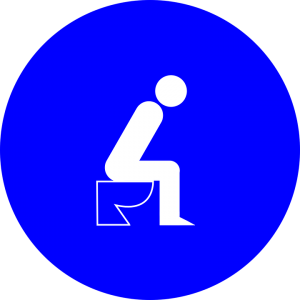
Training your bladder won’t fix your problem overnight, but it can make progress in the battle with incontinence overtime
-
Kegel Exercises
Kegel exercises are the movement of muscles to prevent the flow of urine. The kegel exercises are best for the beginning stages of incontinence.
A well-reviewed professor, Dr. Philippe Zimmern has said that such exercises are beneficial when surgery is completed to control the pelvic floor tone.
To know the kegel exercises require assistance from a therapist. Continuous kegel exercises considerably enhance the performance of the bladder and remedies incontinence.
-
Hypnotherapy
The state of relaxation acquired in hypnotherapy has been noted to have benefits for incontinence. The concentrated state encountered during hypnotherapy helps sufferers feel in control of their bodies Through this method the patient is able to tame muscle contractions. Current research has not highlighted the benefits of this treatment as much, yet the hypnotherapy cannot be disregarded.
-
Get Fit
Sometimes have too much tummy fat places a strain on the pelvic muscles. It has been stated that working towards reducing your weight helps especially when suffering from serious incontinence. Losing excess weight helps ultimately in the control of the bladder.
-
Magnesium
Magnesium is known to cure stress related to incontinence. It is the best remedy to ensure correct muscular and nerve functioning. A research study conducted in Israel proved that consuming magnesium tablets remedied incontinence.
The mineral lowers the rate of spasms in the bladder and promotes an empty bladder. This is attributable to its function in eliminating bladder muscle spasms. Also, it aids in the emptying of the bladder. The best way to get much-needed magnesium is by having foods made of magnesium. Foods rich in magnesium include almonds, black beans, whole wheat, and dark leafy greens.

Spinach is a healthy dark leafy green vegetable
-
Fruits and Veggies
Since incontinence may be the result of constipation and thus having vegetables can relieve constipation and in the long run cure incontinence. Alongside vegetables, fruits are also important. Simply add more of these foods into your diet to see results.
-
Gosha-jinki-gan
Gosha-jinki-gan, as the name suggests, is a Chinese herb with medicinal value. This particular herb can remedy incontinence and a constantly flowing bladder. It was the Japanese researchers who noted the benefits of this herbal remedy. They stated that it can better urine immediacy as well as the number of times one needs to urinate. Gosha-Jinki–gan must be taken only under the doctor’s recommendation.
-
Stay Hydrated
Water’s benefits can never be overstated. Despite how ridiculous it may sound drinking enough water helps cure incontinence. Dehydration may cause constipation and an irritable bladder. Having at least eight glasses of water during the day is required. Be alert when consuming fluids keep track of the amount of liquid consumed.
-
Vitamin D
Vitamin D is useful for bones but has been used to treat symptoms related to incontinence. A person’s vitamin D levels that range from normal to high reduced their chances of developing incontinence. The reason for incontinence prevalence is because many ladies do not have enough of the vitamin. It is vital to take the necessary dose of vitamin D.
-
Vinegar
Having urine drip often unexpectedly and thus the moisture may irritate the skin. It is important to clean up the excess moisture with soap and water. Using diluted vinegar can disinfect the vaginal area and remedy bad smells. Use the diluted vinegar with gauzes whilst in the bathroom.
-
Buchu
The buchu leaves are known to promote a healthy urinary tract. The buchu leaves have beneficial properties to heal bladder infections and incontinence. Buchu leaves are used to improve the urination tissues.
Having a buchu leaf tea is the best way to reap the benefits of buchu. Dissolve the leaf in boiling water. Thereafter strain the tea and have it. Buchu is not recommended if there is inflammation in the urinary tract. Speak to a doctor about buchu before taking it.
-
Cut out Caffeine
Hydration is important for incontinence yet caffeine needs to be cut out of one’s diet. Caffeine is known to cause bladder irritation as well as heal incontinence. Caffeine is known to have an excitatory impact on the bladder. Patients with incontinence need to make sure they reduce caffeine intake.
-
Cleavers
Clevers is known for its ability to cure problems in the urinary tract. This home remedy works best not only for incontinence but for cystitis and an irritable bladder as well. Clevers works wonders as it leads to the development of coating along the bladder.
Place a few teaspoons of the herb in warm water for a few minutes. Strain out the tea prior to drinking it. Drink this whenever your symptoms act up.
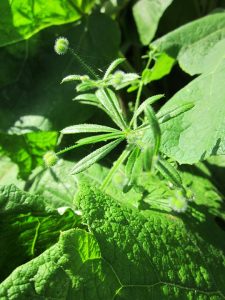
Cleavers herb
-
Yoga
Yoga is one such exercise that is useful for incontinence. Through regular indulging in yoga, the urethral muscles are tightened. It is another form of exercise which much like Kegel exercises reduces stress which may promote incontinence.
A prior study done on the impact of yoga on incontinence showed yoga assisted in controlling stress related incontinence. More than a 50% decrease was experienced by women who battled with leakage.
Incontinence can be controlled using yoga methods like the chair pose or the triangle pose. The best way to reap the benefits of yoga is by joining a yoga class.
-
Foods to Avoid
Many foods have the potential to irritate the bladder. It is important to identify these aggravation causing foods and eliminate them from your diet at once. The reason why certain food causes an irritation in the bladder area is unknown but it’s important to steer clear of spices, tomato-infused foods, and sugars.
-
Acupuncture
Acupuncture is said to be beneficial for incontinence. Certainly, registered acupuncturists have shown that acupuncture works to reduce incontinence. Incontinence is unavoidably caused by imbalances throughout the body not merely the lack of balance in the bladder. Acupuncture cannot yield immediate results yet it is proven to be successful.
-
Applesauce Mix
The amalgamation of applesauce, oat bran, and prune juice is the best remedy. Refrigerate the mixture and consume at least a teaspoon of the mixture daily. Try the applesauce combination with water as well as other juices.
The amount of applesauce mixture drunk must be increased. The mixture is safe except it must not be taken too often as it may lead to excess gas. Have fluids in association with this mixture.
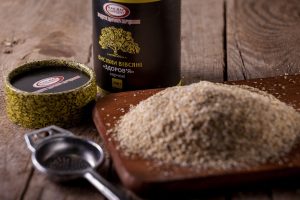
Adding oat bran to applesauce helps to add fiber as well
-
Quit smoking
Like caffeine, smoking is also bad for incontinence. Nicotine can aggravate the bladder. Results and stats show that people who smoke regularly are prone to contracting incontinence. The coughing related to smoking results in urine incontinence.
-
Vaginal Cones
The Vaginal cone is an alternative for women suffering from incontinence. The cones are placed in the vagina and assist in controlling the pelvic floor muscles. The cones are the best form of training as the weight of the cone increases as the control gets better. Although these cones are unbearable for some women it is very helpful.
-
Couch Grass
Couch grass has been termed the herb that cures issues related to the urine system. The couch grass is great for healing and eases any strain on the bladder lining. Couch grass can be consumed daily.
-
Dress Light
Certain clothes can be hectic especially in cases when one suffers from urge incontinence. Jumpsuits and leotards should best be avoided as it prevents one from getting to the toilet urgently. Tight fitting clothes are also best avoided as it may place an obvious strain on the lower muscles.
Tights and stockings make it difficult to reach the toilet on time. Sometimes in severe incontinence cases, it is vital to carry additional outfits in cases of a mess. Urine stained clothes can be cleaned using water and a detergent.
-
Meditation
Meditation is the form of treatment that helps one gain control of their body. Certain cognitive therapy worked towards training the brain to control the bladder again. Mediation is proven to reduce incontinence. Any form of relaxation is best for stress incontinence.
-
Turmeric Mix
The benefits of turmeric have recently been outlined. A great cure involves taking a mixture of Indian gooseberry, turmeric powder, and honey. The de-seeded Indian berry must be ground into a paste form. To the Indian Gooseberry mixture, turmeric must be added along with honey. The amalgamation must be consumed daily for several weeks.
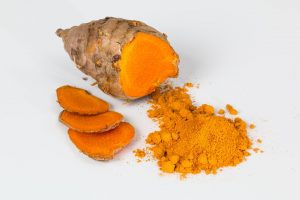
Turmeric root and powder
-
Marshmallow Root
Marshmallow root has many proven health benefits. Its ease of availability makes it a more appealing treatment which also prevents swelling and has healing functions. The root can be consumed in a tincture form, in a tea form or as an extract of the marshmallow root. The root works to strengthen bladder muscles. A tea can easily be made by combining the marshmallow root powder in boiling water.
-
Fennel Seeds Mix
An effective yet simple cure is to mix fennel seeds in a cup of warm water and add sugar. The fennel seed amalgamation becomes a syrup which is added to a cup of milk and drunk every day.
-
Horsetail
The horsetail is a dry herb. A horsetail tea can be drunk or it can be taken as a capsule. The horsetail herb has been believed to work wonders on the kidneys and bladder. The fact that the dry herb can reduce uncontrollable urine excretion already shows it has the power to remedy stress related incontinence.
-
Corn Silk
Corn silk refers to yet another herb from China. Its healing properties are countless but in the case of incontinence, corn silk helps to improve urine flow. Corn silk works by promoting the kidney and bladder which eases urine secretion. Corn silk is also known to ease the urinary tract lining.
-
Crataeva
Crataeva is rarely accessible or heard of but it is known to heal any issue in the prostate area. This home remedy works to purify the blood and has diuretic functions. Crataeva is best taken as per the doctor’s instructions.
Do you know of any other great home remedies for incontinence? If so, comment below!
References
http://www.healthline.com/health/overactive-bladder/home-remedies
http://www.healthcommunities.com/stress-incontinence/urine-leakage-remedies.shtml
http://www.health.com/health/gallery/0,,20457139,00.html
http://www.belmarrahealth.com/urinary-incontinence-men-natural-home-remedies-male-incontinence/

